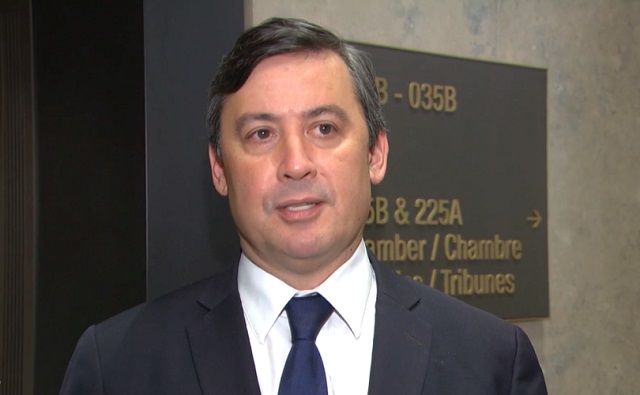Education
Red Deer Polytechnic adds Psychology degrees and two diplomas for fall
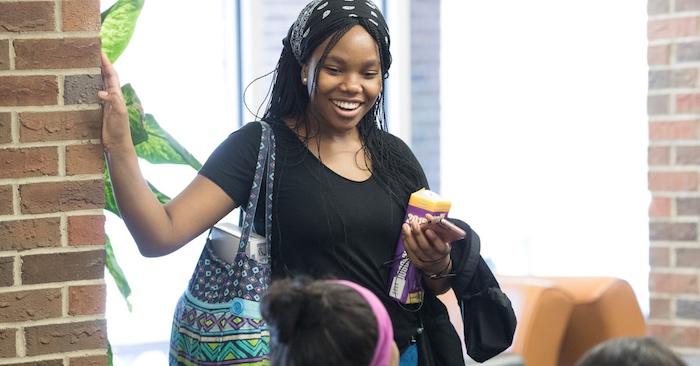
Red Deer Polytechnic continues to expand its breadth of programming for learners by offering a Bachelor of Arts in Psychology, a Bachelor of Science in Psychology, a University Arts Diploma and a University Sciences Diploma, all set to begin in Fall 2021 Term.
“We are pleased to expand our offering of credentials at Red Deer Polytechnic to meet the demand of learners. These new programs signal another important benchmark in the evolution of our post- secondary institution,” says Kylie Thomas, Vice President Academic and Research. “As a unique polytechnic, we are committed to offering diverse academic pathways for students. Pathways including apprenticeship, micro-credentials, collaborative degrees, certificates, more of our own degrees, and diplomas.”
The Bachelor of Arts in Psychology and Bachelor of Science in Psychology provide Red Deer Polytechnic students with a strong foundational knowledge in a range of topics including behaviour, biology, environment, cognition, neuroscience, and how these areas intersect. Throughout these programs, learners will also explore themes of wellness as they expand their analytical, creative and problem-solving skills.
“Offering of these psychology degrees at Red Deer Polytechnic provides learners the access to complete all four years of their program right here in central Alberta. The value of these opportunities cannot be understated,” says Dr. Jane MacNeil, Dean of the School of Arts and Culture. “Throughout their academic journey, students will also benefit from the ability to collaborate with regional partners through participation in experiential learning such as community service and applied research opportunities.”
The new two-year diplomas – the University Arts Diploma and the University Sciences Diploma – will provide students with the necessary skills, knowledge, and experiences that will help them prepare for the workforce upon completion of the program or pursue further education in a variety of fields.
Within the University Arts Diploma, learners can focus on several areas of interest in the Humanities and Social Sciences and may choose one of three academic themes: Global Perspectives; Science and Society; or Culture, Societies, and Gender.
Students enrolled in the University Sciences Diploma will explore subject areas that include Chemistry, Calculus, and Physics, with an initial specialization in Biological Sciences. This diploma prepares graduates to work in biology-related fields, to enter a professional school after two years of undergraduate studies, and to transfer into the last two years of Red Deer Polytechnic’s Bachelor of Science Degree in Biological Sciences.
“Using a holistic interdisciplinary approach, learners will have the opportunity to advance their multi- faceted education as they engage in independent and collaborative scholarly inquiry throughout these diplomas,” says Dr. Nancy Brown, Dean of the Donald School of Business, Science, and Technology. “With a host of hands-on learning opportunities, students will also expand their competencies in solving problems and conducting research projects.”
Red Deer Polytechnic has submitted degree proposals to Alberta’s Ministry of Advanced Education for Bachelor Business Administration and Bachelor of Education as it looks to broaden its program offerings in the future. The process of designing Red Deer Polytechnic’s own Bachelor of Arts in Multidisciplinary Studies is also underway.
More information about these programs, including the application process, can be found online at rdc.ab.ca/apply.
About Red Deer Polytechnic: Our institution’s story began as Red Deer College, opening in 1964. The institution proudly serves its learners and communities with more than 100 programs, as well as impressive learning spaces and facilities. Now, as a polytechnic institution, the post-secondary institution will continue to offer the same breadth of programs in various subject areas and credentials it offers now, plus more of its own degrees. Programs will continue to include apprenticeship training, certificates, diplomas, micro-credentials, degrees and programs in collaboration with partner post- secondary institutions.
Red Deer Polytechnic estimates that about 6,200 full-and part-time credit and apprenticeships students will enroll for the 2020/2021 academic year. The Polytechnic also provides lifelong learning opportunities to 34,000 youth and adult learners annually in the School of Continuing Education. Red Deer Polytechnic’s main campus is located on Treaty 7, Treaty 6 and Métis ancestral lands. This is where we will strive to honour and transform our relationships with one another.
For more information, please visit: rdc.ab.ca
Education
Solar eclipse school closures underscore impact of learning loss

From the Fraser Institute
Instead of making every effort to protect instructional time and ensure that schools remain open, students are being sent home for ever more dubious reasons.
Schools are closed out of an “abundance of caution.” No doubt you’ve heard this phrase many times over the last few years. It was commonly used during the pandemic when provincial governments closed schools for months on end—even after it was widely known that COVID-19 posed little risk to most children.
Ontario schools were closed for 135 days during the pandemic, more than any other province. Parents and teachers are still trying to recover from this enormous learning loss. Clearly, this was one situation where an abundance of caution caused more harm than it prevented.
Sadly, it appears that provincial officials and school board administrators haven’t learned from their mistakes. Instead of making every effort to protect instructional time and ensure that schools remain open, students are being sent home for ever more dubious reasons.
For example, school boards across Ontario cancelled classes on April 8, the day of the solar eclipse. Apparently administrators felt there was too great a risk that students might look at the sun during the eclipse and damage their eyes. No doubt more than a few of them glanced at the sun while sitting at home that day. However, there was no need for the school closures to be as total as the eclipse. If they were really that concerned, school officials could have kept students indoors or simply altered the dismissal times.
Initially, the Waterloo Region District School Board (WRDSB) took a common sense approach by stating that schools would remain open and teachers would use the eclipse as a learning opportunity for students. Then, only days before the eclipse, the WRDSB suddenly reversed itself and said their schools would indeed close on April 8, and students would have the opportunity to engage in “asynchronous remote learning” instead.
This decision sent the unfortunate message that WRDSB trustees are incapable of standing up to pressure from people who think that schools must close at the slightest sign of real or presumed danger. As for the notion that remote learning was an adequate substitute, our experience during the pandemic showed that for most parents and students, remote learning was thin gruel indeed.
As a further sign of how far paranoia has crept into the education system, some teacher unions demanded they too should be able to work from home during the eclipse. For example, Jeff Sorensen, president of the Hamilton local teacher union, said, “If it’s not safe for children [to be at school], then it’s not safe for adults.”
The union representing Toronto’s Catholic teachers made a similar request. In a memo to its members, local union president Deborah Karam said the union was “intensifying our efforts” to ensure that teachers be allowed to complete their professional development activities at home that day. Surprisingly, no union leader has yet explained why teachers would be less likely to look at the sun while at home than at school.
Of course, school boards must focus on education while also looking out for the wellbeing of students. But there’s more to student wellbeing than simply shielding them from all perceived risks. Extended school closures cause considerable harm to students because they lead to significant learning loss.
By normalizing the practise of closing schools at the slightest sign of danger, real or perceived, we risk raising a generation of young people who lack the ability to do a proper risk assessment. Life itself comes with risk and if we all took the same approach to driving a car that school boards take to school closures, would never set foot in a vehicle again.
Ontario students had a once-in-a-lifetime opportunity to experience a solar eclipse in an educational environment, guided by their teachers. While some parents no doubt taught their children about the eclipse, many others had to be at work.
By closing schools out of an “abundance of caution,” school boards sent the message that school is not a place where unique educational events can be experienced together. Students should be in school during events such as the eclipse, not sitting at home.
If we’re going to exercise an abundance of caution, let’s be a lot more cautious about the risks of closing schools at the drop of a hat.
Author:
Alberta
Alberta backs Saskatchewan in court battle defending parental consent for ‘pronoun changes’

From LifeSiteNews
‘Saskatchewan and Alberta agree that the key figures in children’s lives are their parents, and our provinces are both committed to supporting families and children so that they can work through unique needs together,’ the provinces wrote in a joint letter in defense of parental rights.
Alberta has announced its support of Saskatchewan’s policy requiring parental consent for children to go by different pronouns at school amid a lawsuit against the policy by an LGBT activist group.
On April 9, Alberta Minister of Justice and Attorney General Mickey Amery and Saskatchewan Minister of Justice and Attorney General Bronwyn Eyre revealed that Alberta will intervene in Saskatchewan’s Parents’ Bill of Rights case challenging their new pro-family laws.
“Saskatchewan and Alberta agree that the key figures in children’s lives are their parents, and our provinces are both committed to supporting families and children so that they can work through unique needs together,” the joint statement read.
“Notifying parents and requiring their consent before a child’s name or pronouns can be changed in schools, and before classroom discussions about gender identity and other sensitive subjects occur, ensures that the parent-child relationship is respected and paramount,” it continued.
The pronoun policy is just one part of Saskatchewan’s new “Parental Inclusion and Consent Policies,” which also include provisions that ensure parents are allowed to opt their kids out of sex-ed, and that third-party presentations from groups such as Planned Parenthood will be prohibited from taking place.
After the policies were put forth, LGBT activist group UR Pride Centre for Sexuality and Gender Diversity at the University of Regina, represented by Egale Canada, filed a lawsuit to reverse the pro-family laws.
While a judge has ruled in favor of the LGBT group, Saskatchewan Premier Scott Moe announced in response that he will invoke his government’s notwithstanding clause to protect the legislation from the courts.
The notwithstanding clause, embedded in section 33 of the Canadian Charter of Rights and Freedoms, allows provinces to temporarily override sections of the Charter to protect new laws from being scrapped while higher courts make a determination on the constitutionality of the law.
The case is set to be heard in the Saskatchewan Court of Appeal. During the case, Saskatchewan will now be supported by Alberta, which has committed to intervene in the appeal.
“Alberta will seek to advance legal arguments that Saskatchewan’s use of section 33 of the Charter (the Parliamentary Supremacy Clause) should have prevented Saskatchewan’s Court of King’s Bench from reviewing the constitutionality of the Education (Parent’s Bill of Rights) Amendment Act, 2023 legislation,” the province promised.
“This case has the potential to impact not only parental rights across Canada, but also the application of the Parliamentary Supremacy Clause, which has been an integral piece of the Canadian Charter of Rights and Freedoms and the Constitution of Canada since 1982,” it declared.
Similar to Saskatchewan, Alberta recently introduced its much-anticipated pro-family legislation protecting children and parental rights from the worst results of transgender ideology, including banning doctors from medically ‘transitioning’ children, requiring parental consent for pronoun changes in school, and barring men claiming to be women from women’s sports.
Recent surveys have shown that Moe is acting in the interest of Saskatchewan parents by introducing legislation protecting school children from LGBT propaganda.
According to an August 2023 survey, 86 percent of Saskatchewan participants advocated for parental rights, supporting the province’s new approach to the LGBT agenda in schools.
Furthermore, over 40,000 Canadians have pledged their support for Saskatchewan’s fight for parental rights in the classroom, also calling on all other provinces to follow suit.
Additionally, a Saskatchewan teacher wishing to remain anonymous previously told LifeSiteNews that she feels guilty about keeping secrets from parents and supports the decision to keep parents informed.
“I fear that we are not supporting students or parents when we keep secrets,” she explained. “We have many students using alternate names, which sometimes changes frequently during the year, and then are asked by parents if we were aware of the changes after the fact. I feel responsible for keeping the secret and I don’t think it’s fair. I think schools are already taking on too many ‘parent roles’ and it’s important that parents play the ‘parent role’ not teachers!”
-
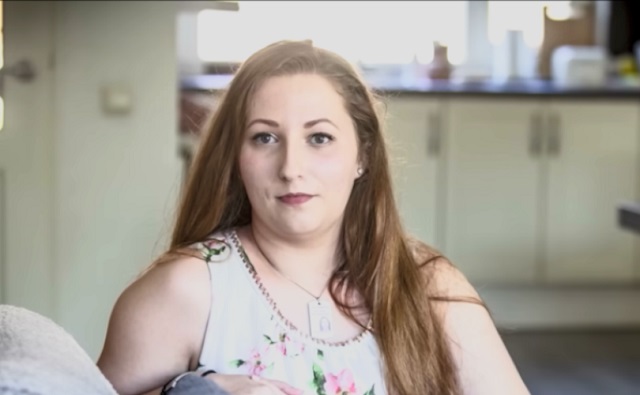
 International2 days ago
International2 days ago28-year-old Dutch woman to be killed by assisted suicide after doctors deem her autism ‘untreatable’
-

 Jordan Peterson23 hours ago
Jordan Peterson23 hours agoJordan Peterson slams CBC for only interviewing pro-LGBT doctors about UK report on child ‘sex changes’
-

 Economy2 days ago
Economy2 days agoFederal budget: You can’t solve a productivity emergency with tax hikes
-

 Addictions23 hours ago
Addictions23 hours agoLiberal MP blasts Trudeau-backed ‘safe supply’ drug programs, linking them to ‘chaos’ in cities
-
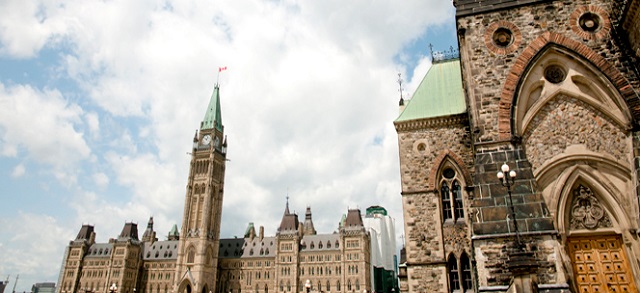
 Economy2 days ago
Economy2 days agoMassive deficits send debt interest charges soaring
-

 International1 day ago
International1 day agoBrussels NatCon conference will continue freely after court overturns police barricade
-
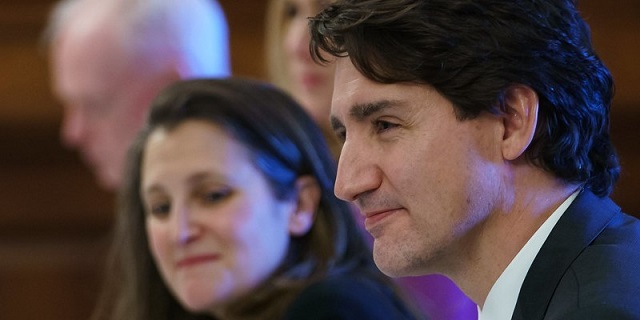
 Economy2 days ago
Economy2 days agoFederal budget’s scale of spending and debt reveal a government lacking self-control
-

 Agriculture20 hours ago
Agriculture20 hours agoBill C-282, now in the Senate, risks holding back other economic sectors and further burdening consumers








